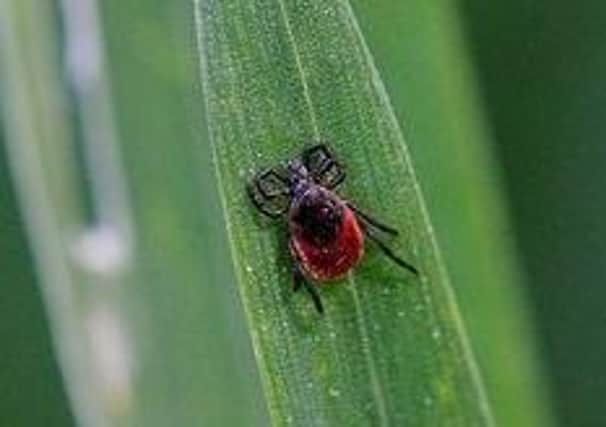Yorkshire Wildlife Trust team’s detailed tick list to prevent bites while out and about


The organisation has seen a real increase in tick bites among its reserve teams which has been put down to the combination of warm and wet weather.
A tick is a small arachnid (related to spiders) that feeds on blood – it can be alarming to find one feeding on your body.
Advertisement
Hide AdAdvertisement
Hide AdDog owners may be familiar with ticks and some species will feed on humans too.
Very rarely, ticks can transmit Lyme’s disease, which has serious long-term effects.
The YWT is offering some tips to deal with ticks and how to avoid bites.
What should you do if you spot a tick on your skin?
A YWT spokesman said: “The first and important thing is not to panic. Don’t just slap it off or squash it, don’t burn it, and don’t cover it in Vaseline.
Advertisement
Hide AdAdvertisement
Hide Ad“You need to remove it very carefully using fine tweezers or a specialist tick removal tool. The NHS website has excellent instructions and explains symptoms of Lyme’s disease, for early treatment.
“People react to other insect bites in very different ways. Some lucky folk will barely notice, while others will end up with angry red reactions or serious swelling. The good news is, for most of us, this will fade naturally if you can avoid scratching or poking at it. A cold compress is as good as anything to relieve that itch. Clean the bite or sting site as soon as you can and apply an anti-septic wipe if you have it.
“Most of the horror stories you hear about involve secondary bacterial infections that could have been avoided with basic hygiene.
“If you feel really unwell, see a doctor as soon as you can and always 999 if you suspect an anaphylactic reaction.
Advertisement
Hide AdAdvertisement
Hide Ad“Don’t go experimenting with homemade remedies, and don’t assume that antihistamine cream will be right for that bite.
“There are some measures to avoid getting bitten by ticks.
“Prevention is always, naturally better than a cure. Insect repellent sprays and creams may work.
“If you are walking through long grass that may hold ticks, wear long trousers and sleeves and tuck your trousers into your socks so the ticks can’t find a surface to latch onto.
“It’s worth checking for ticks if you have been on a walk through long grass as you may not be aware you’ve been bitten.
Advertisement
Hide AdAdvertisement
Hide Ad“There are many things we consider when running and caring for our nature reserves, including natural hazards, but keeping our visitors safe really matters to us. Follow these tips and hopefully you’ll safely enjoy and remember your visit, forgetting the occasional annoying bite as a bug’s lunch.”
Go to www.ywt.org.uk to find out more about the trust’s work across the region.